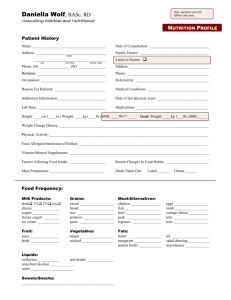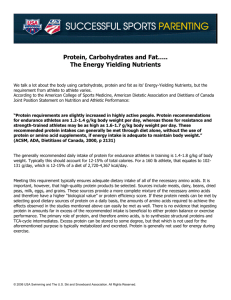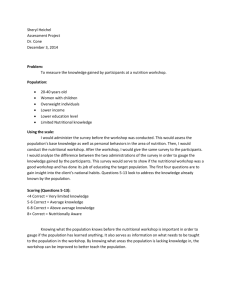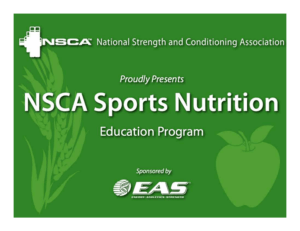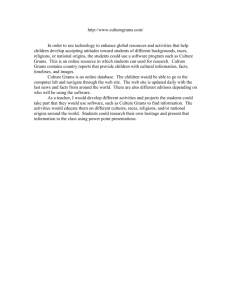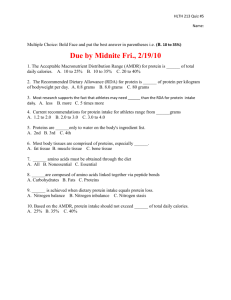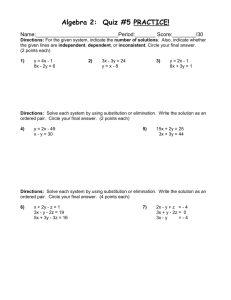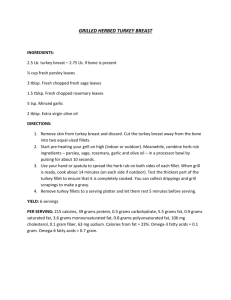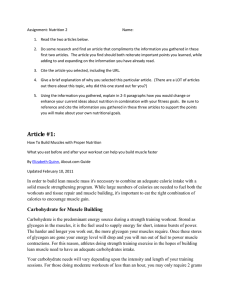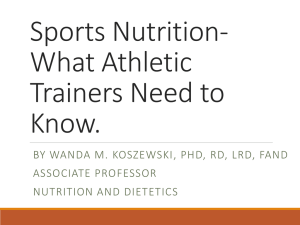Training Diet:Layout 1
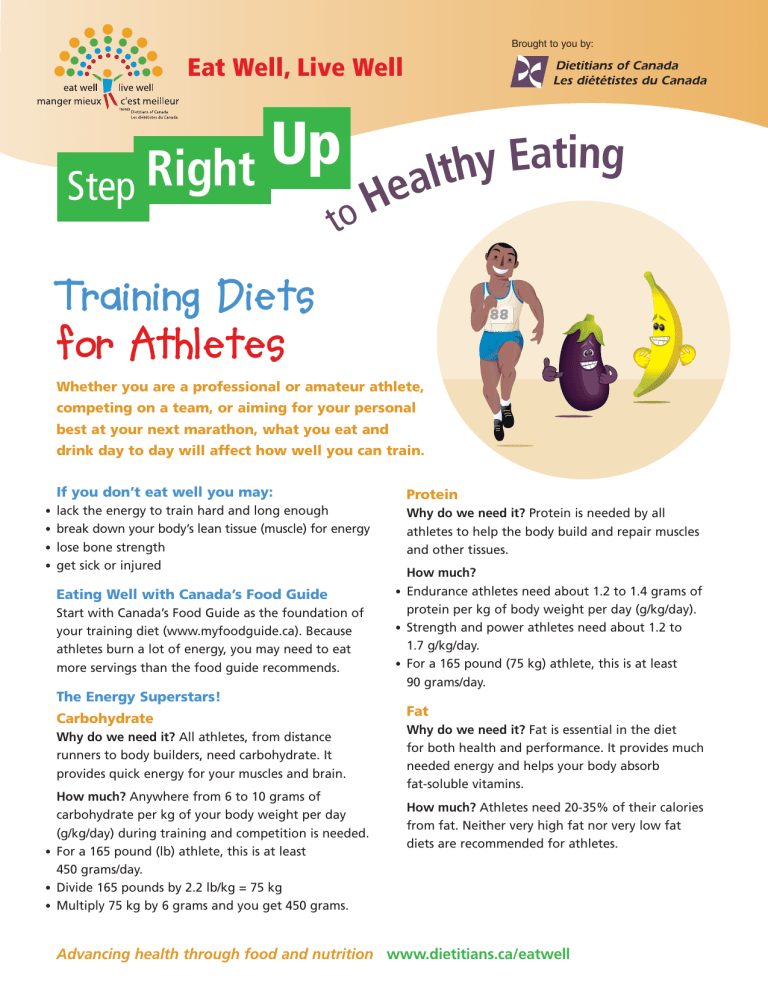
Brought to you by:
Eat Well, Live Well
Step
Right
Up to
H ealt
hy Ea
t i ng
Training Diets for Athletes
Whether you are a professional or amateur athlete, competing on a team, or aiming for your personal best at your next marathon, what you eat and drink day to day will affect how well you can train.
If you don’t eat well you may:
• lack the energy to train hard and long enough
• break down your body’s lean tissue (muscle) for energy
• lose bone strength
• get sick or injured
Eating Well with Canada’s Food Guide
Start with Canada’s Food Guide as the foundation of your training diet (www.myfoodguide.ca). Because athletes burn a lot of energy, you may need to eat more servings than the food guide recommends.
The Energy Superstars!
Carbohydrate
Why do we need it?
All athletes, from distance runners to body builders, need carbohydrate. It provides quick energy for your muscles and brain.
How much?
Anywhere from 6 to 10 grams of carbohydrate per kg of your body weight per day
(g/kg/day) during training and competition is needed.
• For a 165 pound (lb) athlete, this is at least
450 grams/day.
• Divide 165 pounds by 2.2 lb/kg = 75 kg
• Multiply 75 kg by 6 grams and you get 450 grams.
Protein
Why do we need it?
Protein is needed by all athletes to help the body build and repair muscles and other tissues.
How much?
• Endurance athletes need about 1.2 to 1.4 grams of protein per kg of body weight per day (g/kg/day).
• Strength and power athletes need about 1.2 to
1.7 g/kg/day.
• For a 165 pound (75 kg) athlete, this is at least
90 grams/day.
Fat
Why do we need it?
Fat is essential in the diet for both health and performance. It provides much needed energy and helps your body absorb fat-soluble vitamins.
How much?
Athletes need 20-35% of their calories from fat. Neither very high fat nor very low fat diets are recommended for athletes.
Advancing health through food and nutrition www.dietitians.ca/eatwell
Brought to you by:
Eat Well, Live Well
Trainin g Die ts for At hletes
Eating before and after exercise
Eat 1-4 hours before exercise for extra energy, fluid and to prevent hunger.
• Choose foods rich in carbohydrate with some protein and a little fat like a bagel with peanut butter or a small plate of pasta with cheese.
Sip water!
• The longer the time between the meal and exercise, the more you can eat.
• On competition day, never try a new food or drink that you haven’t tried first in training.
Carbohydrate and protein will help your muscles recover after exercise.
• If meal time is a few hours away, grab a snack like a big glass of chocolate milk with a banana.
• If you are training or competing again in less than
24 hours, try to eat within 30 minutes or so after exercise.
Pulling it all together
Meet Patrick. He is a 75-kg varsity soccer athlete. Check out his 1-day food diary to see how easy it is to meet these needs for carbohydrate, protein and fat.
• Breakfast: Boiled egg, whole grain toast with peanut butter and jam, a mango, glass of milk
• During mid-morning practice: 1L sports drink
• Recovery snack: Banana, whole grain pita with hummus, glass of cranberry juice
• Lunch: Large turkey submarine sandwich topped with veggies and oil and vinegar dressing, orange juice
• During resistance and core training: Water
• Recovery snack: Fruit smoothie (milk, yogurt, strawberries, blueberries, wheat germ, honey)
• Dinner: Garden salad topped with walnuts, shredded cheese and olive oil vinaigrette. Grilled salmon, rice, juice spritzer.
• Evening snack: Bowl of cereal with fortified soy beverage, topped with berries
(Patrick also sipped water throughout the day)
TOTALS:
• 3588 calories
• 120 grams protein (or 1.6 g/kg/day)
• 525 grams carbohydrate (or 7 g/kg/day)
• 112 grams fat (28% of calories from fat)
A registered sports dietitian can help you optimize your eating plan for your sport and training demands. To find a dietitian:
• click on www.dietitians.ca/find or www.coach.ca
to find a sports dietitian in your area
• ask your doctor for a referral
• call Dietitians of Canada Consulting Dietitians
Network at 1-888-901-7776 .
This Factsheet distributed compliments of:
Advancing health through food and nutrition www.dietitians.ca/eatwell
©2009 Dietitians of Canada. All rights reserved. May be reproduced in its entirety provided source is acknowledged.
For non-commercial use only.
